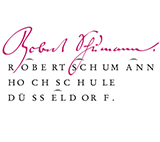Detailed introduction of Robert Schumann Hochschule Düsseldorf:
Introduction and Overview
School size: The school has about 850 students from more than 40 countries, providing an international learning environment.
Location: Located in Düsseldorf, the capital of North Rhine-Westphalia, Germany. Düsseldorf is one of the important economic, cultural and artistic centers in Germany, providing students with rich opportunities for art performances, cultural exchanges, etc.
History and establishment time
In 1935, three private music schools merged into the Robert Schumann Conservatory. In 1972, North Rhine-Westphalia became the governing body of the conservatory, and the conservatory became part of the Rhineland Public Conservatory. In 1987, the college became an independent institution and was renamed the current Robert Schumann Hochschule Düsseldorf.
School Strength
Teaching Staff: It has 47 full-time and part-time teachers and 200 associate professors, most of whom are professionals with rich teaching and performance experience in the field of music, and can provide students with high-quality personalized teaching guidance.
Teaching Mode: Focusing on practical teaching, students have a lot of opportunities to participate in concerts, opera performances and other activities organized by the school, and perform with orchestras, choirs, etc. to improve their stage performance ability. At the same time, the school also works closely with art institutions such as the Deutsche Oper in Düsseldorf to create more practical opportunities for students.
Scientific Research: Teachers of the musicology major conduct in-depth research in the fields of historical musicology and systematic musicology, organize scientific seminars, and publish academic papers. In addition, the school's School of Music and Media focuses on students' practical training in the media and music industries, providing students with high-quality education in these professional fields.
Institutional Nature
The school is a public higher music school.
Educational Philosophy
It is committed to cultivating well-rounded music professionals, not only focusing on the cultivation of students' professional skills in music performance, composition, music education, etc., but also emphasizing the improvement of students' social and educational abilities, so that students can succeed in different music professional fields and contribute to the inheritance and development of music culture.
Key Disciplines and Faculties
Key Disciplines: Music Performance, Music Education, Musicology, Music and Media and other disciplines are the school's key disciplines. The music performance major covers various instrumental performances and vocal singing, and has cultivated many outstanding stage performance talents; the music education major provides students with professional training to become music teachers; the musicology major focuses on music theory research and academic exploration; the music and media major keeps up with the development of the times and cultivates students' innovative ability in the field of music and media integration.
Department settings: The school has teaching and research units such as the School of Music and Media, the Institute of Musicology, the Institute of Church Music, the Institute of Composition and Music Theory, and the Schumann Junior College, covering all levels and fields from basic music education to higher music academic research.
Ranking
The school has a high reputation and international influence in the field of music majors, but there is currently no clear comprehensive ranking data.
Expenses
Tuition fees: As a public institution, the school does not charge tuition fees, but requires semester fees. The semester fee for the summer semester of 2024 is 335.48 euros.
Other expenses: Students may need to bear the cost of purchasing musical instruments, music scores, textbooks and other learning supplies, as well as the related expenses of participating in performances, competitions and other activities. In addition, students are also required to arrange and pay for living expenses such as accommodation and food.
Campus
Campus environment: The campus has modern teaching facilities and a good artistic atmosphere, providing students with a comfortable learning and living environment. The school's architectural style is unique and full of artistic atmosphere. The campus also has professional facilities such as libraries, concert halls, and rehearsal rooms to meet students' learning and practice needs.
Campus culture: The school often holds various concerts, lectures, workshops and other activities, and invites well-known musicians and scholars from home and abroad to the school for exchanges and performances to enrich students' campus cultural life. In addition, the school also encourages students to organize and participate in various music clubs and art activities to promote exchanges and cooperation among students and cultivate students' teamwork spirit and innovation ability.
-

Heidelberg University
-

University of Freiburg
-

University of Jena
-

University of Marburg
-

University of Rostock
-

University of Bayreuth
-

University of Halle-Wittenberg
-

Leipzig University
-

University of Tübingen
-

Humboldt University of Berlin
-

Mesoamerican University
-

Istmo University
-

Mariano Galvez University of Guatemala
-

Regional University of Guatemala
-

Galileo University
-

Francisco Marroquín University
-

Rafael Landívar University
-

University of the Valley of Guatemala
-

University of San Carlos of Guatemala
-

Technological Institute of Tlaxcala Plateau
-

Golfo University
-

Technological University of South Sonora
-

Technological University of Huejotzingo
-

Tizimín Institute of Technology
-

Chilpancingo Institute of Technology

